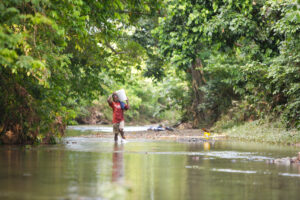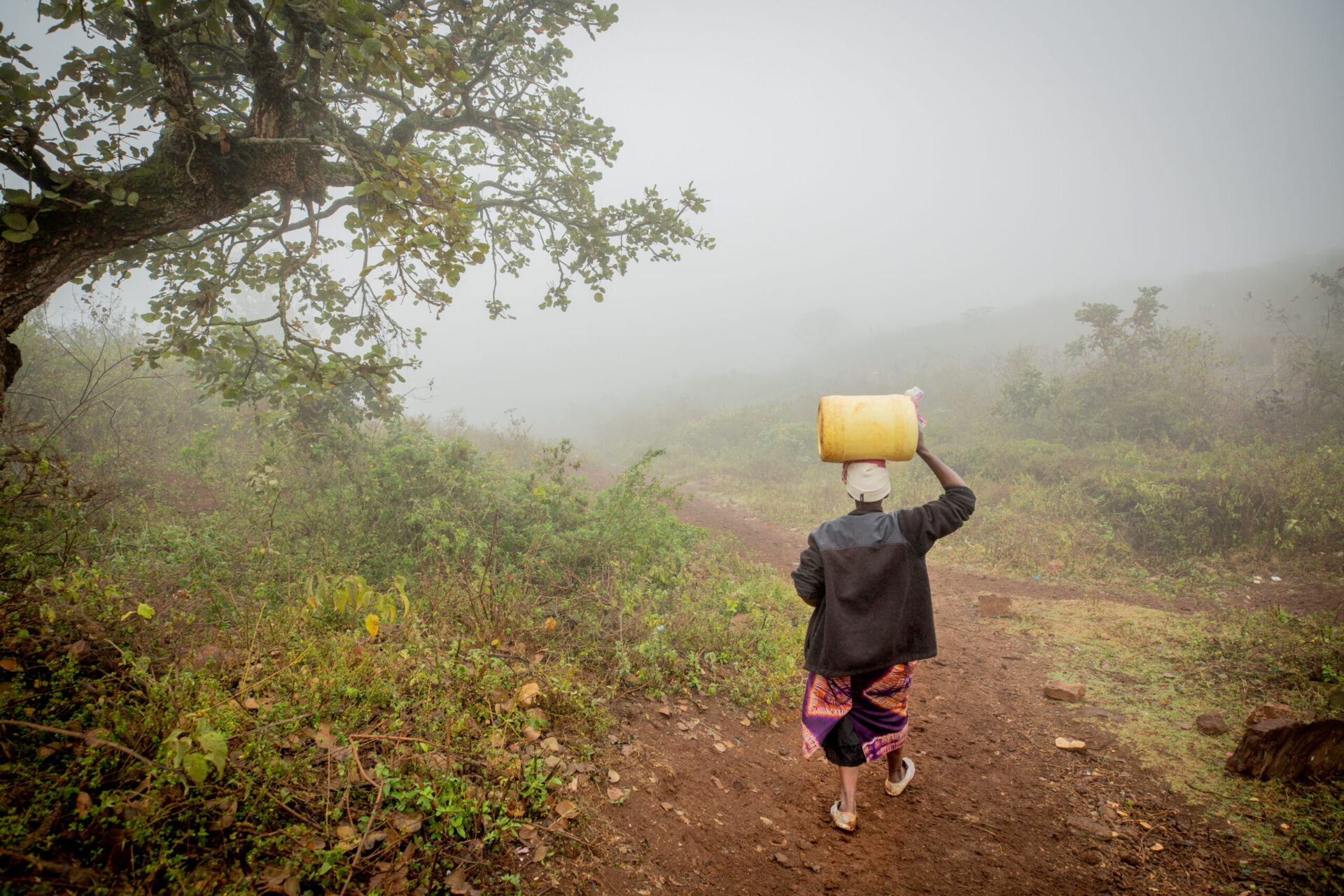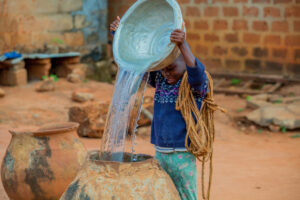This guest post is by Vapor Ministries. Vapor Ministries is a Christian nonprofit that meets needs, feeds souls, and elevates God in poverty-stricken environments across Africa and Haiti.
We can all show God’s compassion to others by sharing his provision. Throughout the scriptures, the Lord invites—and commands—his people to care for the materially poor.
At Vapor Ministries, we work to alleviate poverty and multiply disciples for Christ in the poorest places on earth. Each country and community we serve presents unique challenges to human flourishing, but one critical need common to all of these areas is clean water.
The Clean Water Crisis
Unsafe water sources are responsible for more than 1.2 million deaths each year and are a leading risk factor for infectious diseases like cholera, typhoid, dysentery, E. coli, and hepatitis A. This water may come from unimproved sources like springs or unprotected wells or from surface sources such as lakes, dams, ponds, and streams.

The improved water provided by public taps, protected wells, and collected rain is better for consumption, but only safely managed water is classified as free from microbiological and chemical contamination.
Since safe water requires infrastructure and regulation, developing countries, particularly those in Africa and Southeast Asia, are hit hardest by the clean water crisis.
Globally, one in four people lack access to safely managed drinking water. Individuals in low-income regions account for more than 70% of those adversely affected.
Common Challenges: Water quality and transportation
All three countries where Vapor Ministries currently serves (Togo, Kenya, and Haiti) rank among the most marginalized when it comes to securing adequate water. While clean water provision is not the sole focus of our outreach initiatives, it is a key pillar in helping transform impoverished communities.
In Togo, for example, less than 20% of the population has safely managed water, and 2 million people still can’t access it from an improved source. More than 6% of all deaths there are attributed to unsafe water – nearly 3 times the global average.
Unsafe water-related deaths run twice the global norm in Kenya, where improved water sources elude more than 15 million residents. Nearly 23% of Haitians struggle with this same problem.
Water quality is only part of the crisis. Accessibility and transportation are also barriers to water access. People routinely haul between 40 to 100 pounds of water many miles daily. Imagine carrying out this labor-intensive process for a contaminated resource. This is the reality millions of people face every day.

Woman carrying water into the distance.
Unique Obstacles: Water infrastructure, climate, violence, and more
Though safe water is a critical concern in each of these countries, the obstacles preventing access and complications associated with demand can vary dramatically.
Even in larger cities like Nairobi, Kenya, where water-related infrastructure is more prevalent, shortages remain common, particularly during droughts. In addition, poor urban planning and construction techniques have left many communities with an insufficient supply or no water at all. Other building projects and manufacturing practices have contaminated natural waterways, further exasperating the crisis.
In some regions, nefarious groups seize, block, or damage water mains to increase demand and profits. Villages often become protective of water points during dry seasons, creating conflict between communities. It’s also not unusual for wild and dangerous animals to find their way into homes in search of reserves when natural sources wither.
Seasonal changes wreak similar havoc throughout Haiti. While the government has partnered with multiple NGOs to provide boreholes (drilled wells) in some communities, many of them fail to produce water during dry spells. As a result, thousands of people resort to utilizing surface water, which increases the prevalence of disease.
Togo, on the other hand, doesn’t suffer from droughts or shortages nearly as often, but a lack of filtration systems and storage facilities plagues much of the country. Water salinity is particularly challenging, especially in the southern areas, making retrievable water difficult to consume.
Water for all

Vapor Ministries provides clean water by working within the needs, constraints, and opportunities that are unique to each of these regions. Vapor center wells in Kenya provide clean water to countless thousands of residents in the densely-packed Kawangware and Gichagi slums just outside Nairobi. We operate the deepest known well in Togo’s southern region; the well transports water over 1,400 feet up to the surface before an industrial grade reverse osmosis system dispenses drinkable water. And three community outreach centers in northeast Haiti supply multiple communities with safe water even when other sources run dry.
Our Kenya-based centers also routinely hires tankers to carry water to remote locations, provides the resource to nomadic Maasai herdsmen, and even supplies the local fire brigades when needed.
In 2022, our teams provided more than 65 million cups of clean drinking water to people facing this crisis. We are able to touch hundreds of thousands of lives each year because this life-sustaining resource is flowing into communities ensuring sufficient hydration, improved hygiene and sanitation, safe cooking practices, and much more. Water is life, and every drop provided is free of charge.
Start your journey towards a lasting legacy
Bring your family together around shared values and goals for generosity through a donor advised fund.
Start a FundTogether we’re redefining generosity.
Join the conversation and get our newsletter.
